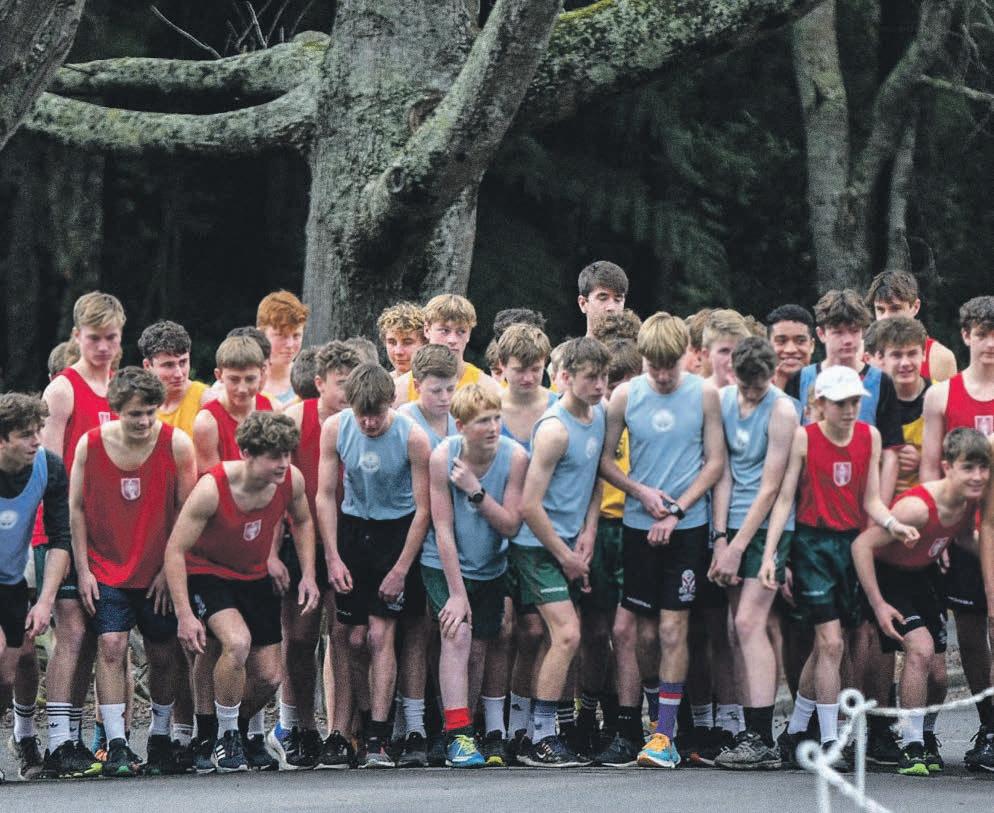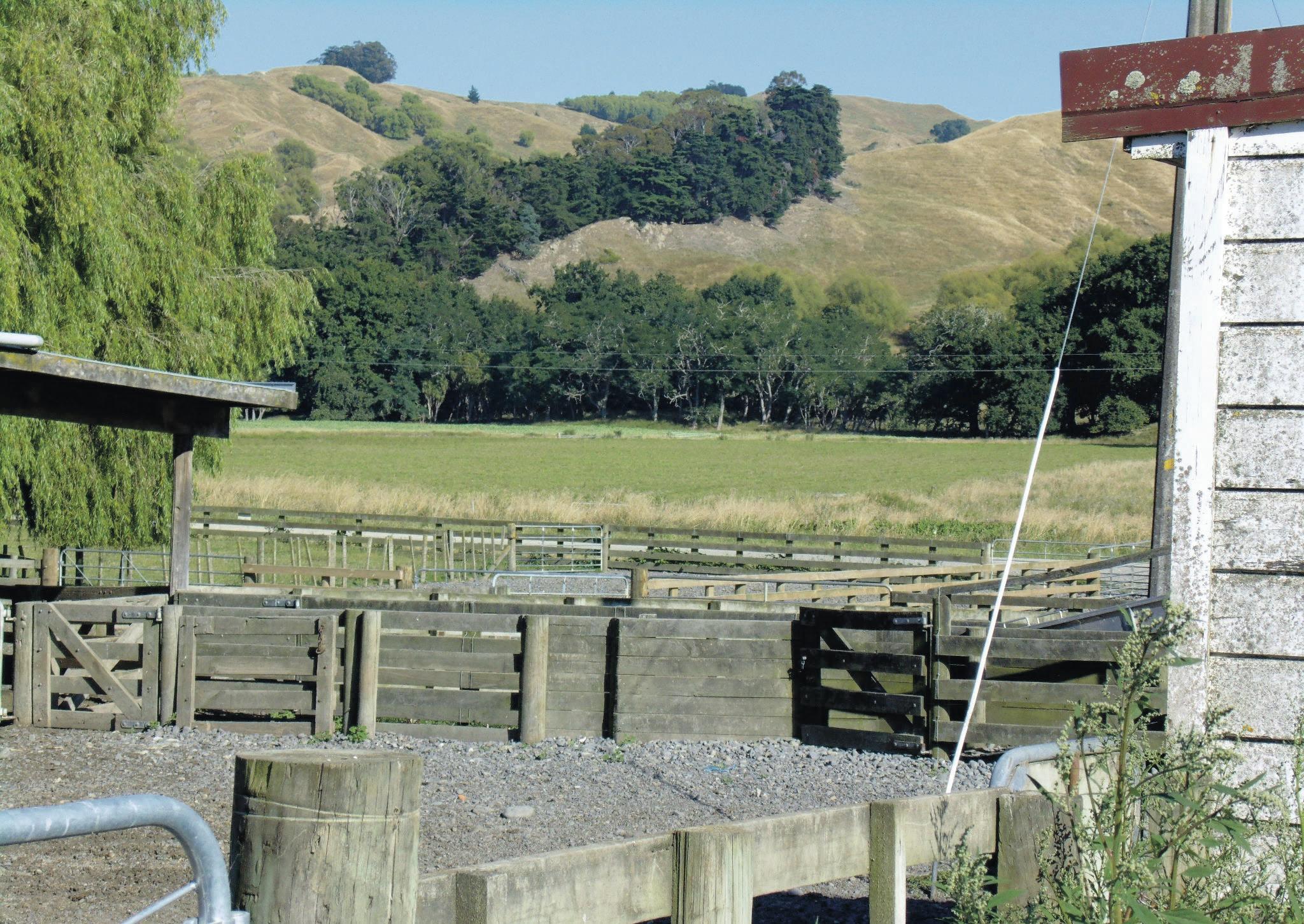



































We checked in with Federated Farmers Wairarapa President David Hayes to ÿ nd out what he thinks are uppermost in local farmers’ minds at the moment.
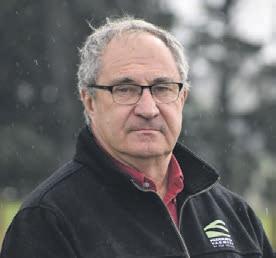
The weather and recovery from Cyclone Gabrielle
We have been through an extraordinarily wet year that culminated with the most recent cyclone. The recovery will be long and di° cult for many and we will soon be heading into winter.
While feed is not generally an issue right now, there are farms with most paddocks unavailable to grazing with fences down and other damage. The immediate priorities include re-establishing access to farms and on farms. Then it will be fencing, yards and pasture repair. Grazing will be needed for many moving into winter.

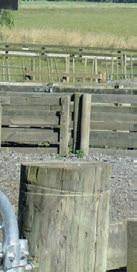

We have initiated the “This is how we roll in the rapa” to gather donations of fencing materials that will be distributed by the East Coast Rural Support Trust. It’s been great to see the support from government, the local mayoral relief fund, and the tremendous work of many people including the Rural Support Trust.

Farmers are innovative and can solve the most challenging issues. However, too often regulators think that more and more onerous and di° cult regulation will see the outcomes the community want. However all they are doing is sti˝ ing innovation and the ability to improve including for environmental issues.



The proposed changes to the RMA are the most recent examples.
A Federated Farmers survey has found just over 65-percent of respondents are negative about current economic conditions. That’s the lowest level of conÿ dence recorded since surveys began in 2009. This is in part due to dramatic increases in costs for fertiliser, machinery and supplies.

A lot has been said about community resilience as we move from one crises to the next, including COVID and weather events. Farming contributes to the wellbeing of our region and communities, and builds resilience into our economy.
It’s important that farming continues to be an important part of this region over the long term.
Average temperatures and rainfall are predicted for the Wairarapa for the rest of autumn by NIWA.
In its Seasonal climate outlook March - May 2023, NIWA predicts “temperatures to be near average (40% chance) or above average (45% chance). Rainfall totals are equally likely to be near normal (40% chance) or above normal (40% chance).
“The remnant e˛ ect of La Niña could still see some sub-tropical and/or tropical low pressure systems track near the region, occasionally increasing the risk for heavy rain. Soil moisture levels are about equally likely to be near normal (45% chance) or above normal (50% chance) while river ˝ ows are most likely to be above normal (50% chance).”


matter where you are in the Wairarapa, from home to woolshed we can connect you with world class rural and urban broadband.





A life-long interest in agriculture and a desire to contribute to the Wairarapa region has blossomed into a new career path for Masterton’s Lauren Hale. Lauren has recently been appointed as a regional adviser for the Ministry for Primary Industries’ new extension service, On Farm Support. The free service has been launched to provide onthe-ground support for farmers and growers around New Zealand as they face an increasingly complex operating environment. On Farm Support aims to help farmers and growers build on sustainability practices and navigate requirements around climate, water and the environment supported by an integrated approach to farm planning.
“Farmers and growers in the Wairarapa are resilient and innovative and are inspiring



to be around. I’m in awe of the passion they have,” Lauren said.
“My role is to help farmers in the region navigate change and continue to be successful by sharing relevant information, resources, innovation and tools with them.”
The new challenge is a great fit for the Wairaraparaised, Victoria University of Wellington graduate, who admits she has a deep affection for farm life in Wairarapa.
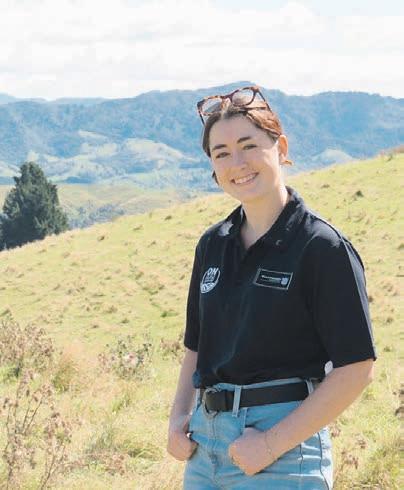
“I grew up on a lifestyle block and I was always following my dad around whether it was shifting, drenching or shearing sheep. I loved it.
“My father is a wool buyer, and my grandfather was a shepherd and a stock agent so I’m following family tradition with a career in agriculture.”
Lauren has a hands-on understanding of farming life in Wairarapa from her work experiences as a wool classer, a role she started in summer holidays when she was 15.
“When I first started, it was all




new to me and I was shy but I gained more confidence in my work being around the rousies. It was hard work, but good fun and I learnt a lot.”
After finishing secondary school at Wairarapa College, Lauren travelled to Wellington and studied cultural anthropology and international relations at Victoria University, graduating in 2019.

In 2021, Lauren began working fulltime with Federated Farmers in Wellington. It was there she became interested in climate change and how farmers and growers were responding to those challenges through her work in communications and policy. However, the opportunity to be based in Masterton to work with Wairarapa farmers and growers on-the-ground with On Farm Support was an exciting prospect and she started her new role in February 2023.
On Farm Support teams are based across 10 regions
throughout the country and the rest of Lauren’s lower North Island team is based in Manawatu and Whanganui. After only a short time on the job, Lauren has already played a part in the On Farm Support team’s wider effort assisting in the response to Cyclone Gabrielle. She has also spent time at industry events meeting farmers and rural professionals and looks forward to building strong relationships with industry partners. Outside of work, Lauren can be found in the hills hunting alongside her father, and is also an active member of the Wellington Young Farmers Club. For more information about On Farm Support visit www.mpi.govt.nz/on-farmsupport, call 0800 00 83 33 or email onfarmsupport@mpi.govt.nz

DairyNZ’s Step Change project is helping farmers answer this question and show ways they can reduce GHG, improve water quality, and improve proÿ tability.
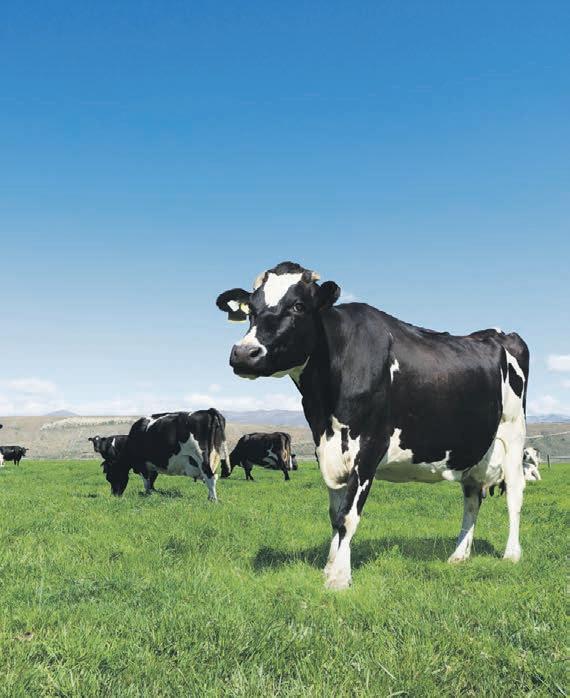
This ÿ ve-year project aims to ensure that by 2025 farm businesses are proÿ table, are on track to meet 10% methane target in 2030, are working toward meeting regulated N limits, and farmers have conÿ dence in their business and future.
There is no one size that ÿ ts all, so the approach is to ensure that individual farmer needs are understood and catered for in developing change initiatives.
Project activity with both ÿ eld sta° and farmers is to be integrated with existing work to build greater awareness and new behaviours around improving feed management and other mitigations.
DairyNZ is collaborating with farmers and industry partners to ensure consistent messaging that is practical, relevant and evidence-based.
Wairarapa Rural Outlook got in touch with DairyNZ to ÿ nd out how Step Change is going in Wairarapa.
Has Step Change begun to be implemented in the Wairarapa, and from when?
For the ÿ rst two years of the project our focus has been on raising awareness around New Zealand knowing numbers (individual farmer numbers for biological emissions, methane and nitrous oxide).
DairyNZ has been working with farmers – showing where they sit now, where they could be and how to get there. We have also been supporting farmers who want to act now.
How is it being implemented in Wairarapa?
DairyNZ has been running sessions to help farmers understand their numbers for biological emissions (methane and nitrous oxide).
How many farmers in Wairarapa are involved with it so far?
We have solid interest from a good number of farmers across
the region.

What has been their reaction to the programme?
Dairy farmers have recognised the need to be proÿ table, so DairyNZ’s move to apply a proÿ t lens has been wellreceived.




All farmers now know their numbers for biological emissions (methane and nitrous oxide). They understand the need for change, and they all know what to do to reduce environmental footprint.

What are some areas of farming practices that provide the best opportunities for achieving these goals?
We’re focusing on farm systems solutions to reduce N loss and GHG emissions (methane and


The goal of Step Change is improve proÿ tability at the same time as reaching environmental targets

nitrous oxide) and supporting farmers to act. We have been focusing on supporting farmers to increase e˛ ciencies across the board to optimise the use of inputs, such as feed and fertiliser, to increase proÿ t and reduce footprint.
We are 100% New Zealand owned and operated. All of our products are produced from all-natural limestone, quarried right here in Wairarapa. We don’t use unnecessary additives or chemicals and offer both organic and non-organic options.



The new look PGG Wrightson Real Estate Ltd Wairarapa team has the right knowledge to guide anyone through the changing property market. We bring together our local expertise as well as the network of salespeople up and down the country. This means that we can o˜er so much more to our current and future clients, and we can’t wait to share these new opportunities with everyone.
If you have any questions or want to chat about what we can do for you, just pop into our newly branded o°ce. PGG

















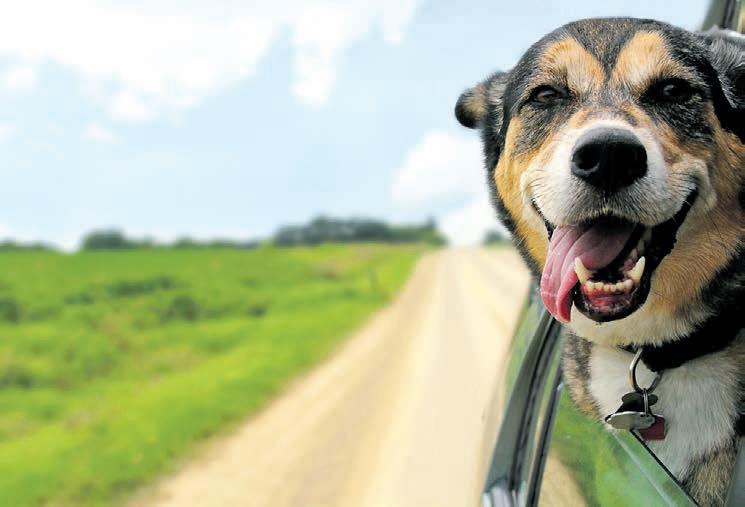
Te Uru R˜kau –New Zealand Forest Service has produced new online planting guides for owners of erosion-prone hill country at www.canopy.govt.nz
The easy-to-read planting guides cover ÿ ve topics:
• What to plant on erodible land

• Riparian planting around headwater streams
• Plantation forestry on erodible land


• Putting a value on the beneÿ ts of planted forests
• Wider beneÿ ts of planted forests – the value of ecosystems
For farmers looking for ÿ nancial support, there is information on a range of funding that they may be able to get.

The content has been developed from extensive

research on erosion-prone hill country in the Hawke’s Bay and Tararua regions, led by Crown Research agency Scion, supported by funding awarded to the Hawke’s Bay Regional Investment Company by the One Billion Trees Partnership Fund.
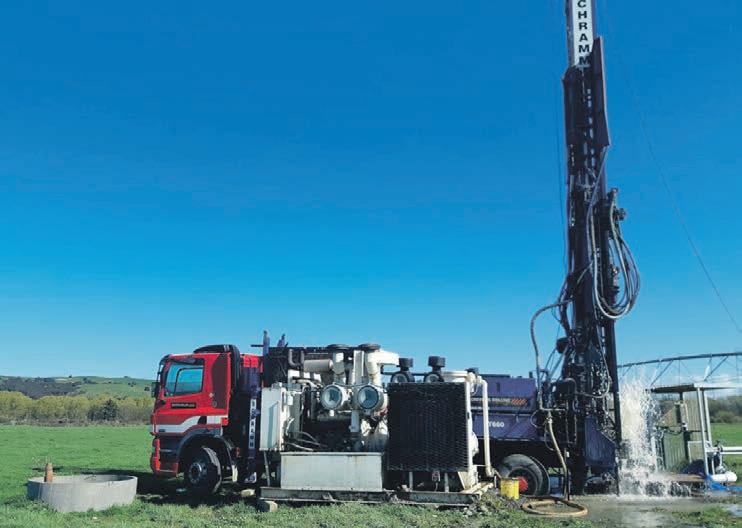
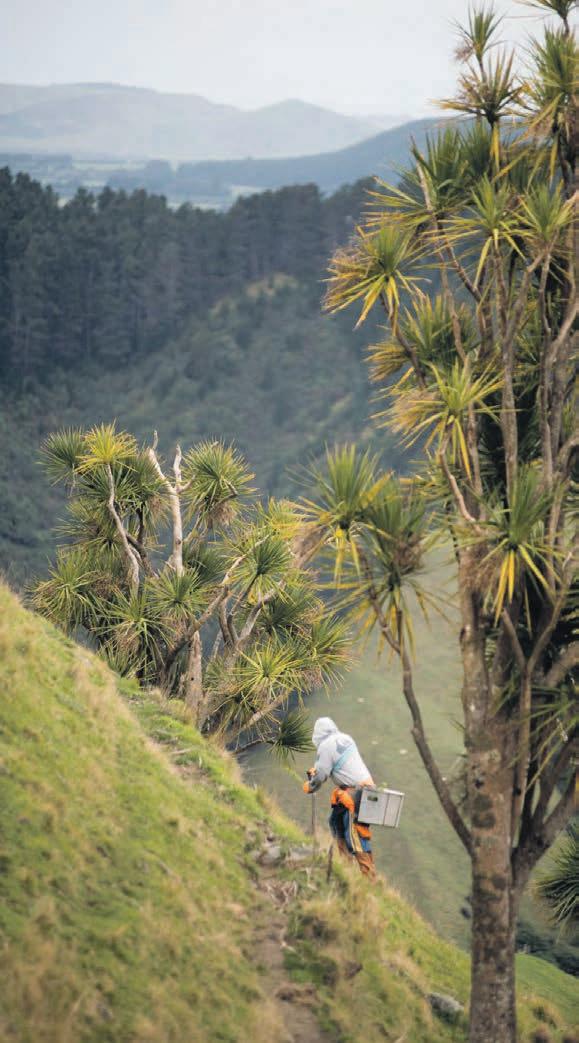
The beneÿ ts of planting on erodible land are laid bare in the guides.
Planting highly erodible land in trees can increase ÿ nancial returns from land and, for each dollar earned, provides 1.5 times the value in avoided erosion, avoided nitrogen leaching, and carbon sequestration.
In addition, new forests provide habitat for species like kiwi and karearea, and the beneÿ ts from regenerating headwater streams and riparian areas would ˛ ow to downstream waterways.
“Loss of productive land through erosion has a signiÿ cant impact on the



environment, economy and local communities,” says Dr Emily Telfer, Te Uru R˜kau –New Zealand Forest Service manager research and science.
“We can’t prevent storms and ˛ oods happening, but through tree plantings we can help mitigate against the impacts on people and livelihoods from slips and erosion.”
Dr Telfer says while the research focused on Hawke’s Bay and Tararua, its ÿ ndings are applicable to much of Aotearoa New Zealand.

“Erosion and its e˝ ects in hill country areas alone are estimated to cost New Zealand’s economy $250 million to $350 million a year.
“Planting trees in erosionprone areas, particularly in the upper areas of a catchment, is much more cost e˝ ective than putting in ˛ ood-control structures in the lower areas and cleaning up after a ˛ ood.”
Scion’s research noted native species are suitable for



planting across the Hawke’s Bay.
Management options include permanent carbon forests on steep land and land at high elevations or growing plantation podocarps such as tōtara or rimu.
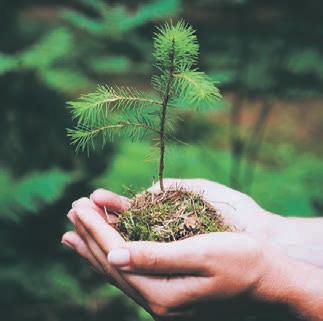
Radiata pine can contribute significant value, where access for harvesting and transport make this economically viable. Coast redwood and eucalyptus are good options for plantation species at lower elevations if individual species requirements are met. Mānuka for honey is a good choice for warm, sunny slopes.
Farmers who have planted erodible areas of their land report they can focus on improving the productive areas of their farms while also generating additional income from forestry.
They also appreciate the ecosystem services benefits including increased resilience to the impact of severe storms, the research said.
The research revealed that many landowners overestimate the returns from their poorest land, and in many instances, these poorest performing areas could benefit from afforestation, allowing resources to be focused more intensely on farming the better performing land classes. A complementary approach where less productive land is afforested, and higher quality land is managed more intensively, can lead to higher overall farm returns and benefit communities and environment more than converting the whole property to forestry.
The fact sheets are available www.canopy.govt.nz
The Times-Age approached Rural Contractors NZ member Scott’s Ag Contracting, based at Parkvale, for some comment on the growing season. We spoke to Jason Scott. How are things going at the current moment as regards agricultural contracting work being carried out in the Wairarapa? Are there any issues and if so what and why?
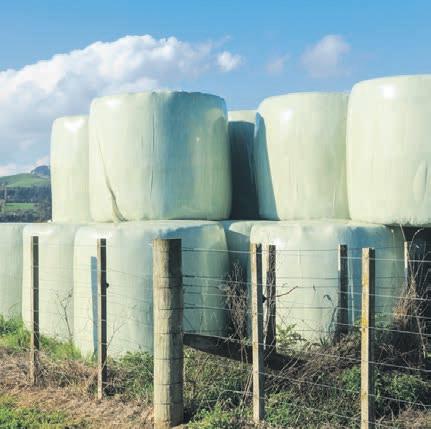

The main thing this year is definitely the weather. It’s just the volume of rain we’ve been getting. It’s so hard to make hay. We’ve had two wet years in a row and this is definitely wetter than the last one. You used to be able to virtually guarantee some dry weather.
How has hay harvesting going? Is there enough being harvested to take care of needs till the next harvest?
It’s basically just turning to baleage. We’ve been lucky enough to squeeze
some hay in but the ground conditions haven’t allowed much. From a contracting perspective it’s easier for us to make than hay but it’s a dearer product for the farmers. Costs for them this year have been the hardest thing as they are at the end of the chain. Stock do also need some dry matter and there’s not been a great deal of straw either as it’s being chopped back into the ground with the wet conditions. That particularly affects dairy farmers for winter feed. Do you have any other comments or advice for farmer clients?
The upside of a damp year is that the grass growth is plentiful and there’s bales for miles. Our company has got a surplus. From Scott’s Ag point of view, our advice to farmer clients is stick at it – weather cycles do come right. Also, farmers tend to look outside of the farm to reduce costs and it could be a good time to review on-farm practices.






In a press release published by Animal and Plant Health







New Zealand in January, the organisation’s chief executive Mark Ross said the backgrounds of the students who had won horticulture and agricultural scholarships were varied but they all shared a passion for agriculture and saw it as o˜ ering diverse career opportunities and experiences.
But Mark was surprised to discover at a recent Animal and Plant Health NZ leadership forum that fewer students are choosing to study horticulture and agriculture.
“It raises a sense of unease for the future, especially given the trajectory of the primary industries,” he says.








“Now, more than ever, we need progressive, smart and educated individuals to help


innovate and drive change for growers and farmers - to enable them to survive in a changing climate, during a time of increasing political interference and escalating consumer demands.

“New Zealand is touted as the food basket of the world, but with intense regulation from governments – both here and overseas, people are needed to seek solutions to meet these demands and drive productivity in farming.
“With pressures to slash emissions, be productive and support the economy, New Zealand farming is in a vice.

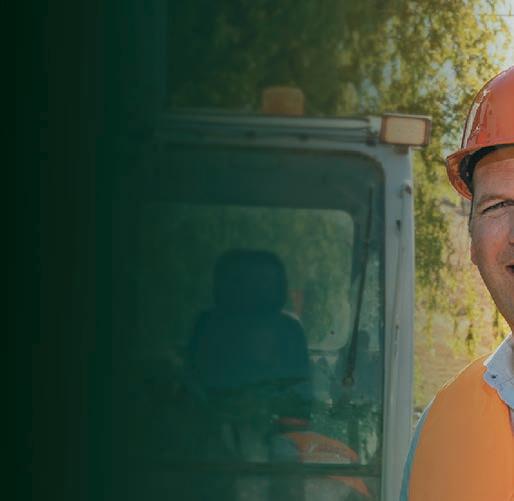





“It must ÿ nd solutions to producing more with less –using fewer resources, emitting less, and on less available land.



Managing these pressures requires innovative thinking and ideas.”
Farming industries are crying out for Bachelor of Agricultural Science students to keep abreast and help manage the myriad of issues the sector

faces, Mark says. High demand also exists for horticultural graduates to keep pace with our booming horticultural industry.
“Tragically, New Zealand universities have experienced a downturn in student numbers in recent years, resulting in too few agricultural and horticultural graduates to meet industry demands.”


Associate Professor in Weed Science at Massey University, Dr Kerry Harrington, suggests some causal factors for this downward trend.
The Covid restrictions created di˛ culties for secondary school students.

New Zealand is also in a period of low unemployment combined with a high cost of living, so the temptation for people to be lured into earning an income versus studying and accumulating debt could be a contributing factor.
Despite there being no fees in the ÿ rst year of study, the cost of university education is a


major turn-o˜ for many.
Student allowances have barely increased in many years. Universities have had few funding increases which, in turn, a˜ ects future fee structures for students.
Another thorn in the side of agriculture is the negative publicity that the industry endures, especially around issues such as methane emissions and leaching of nutrients into waterways.

Schools can also put students o˜ studying ag, for similar reasons. But perhaps what


they’re missing is the pathway to solutions.
Trained professionals are needed more than ever to help farmers modify their practices to ensure the continued sustainability of agriculture. Studying agriculture or horticulture at university doesn’t require a string of prerequisites.
Secondary students interested in either degree must only have studied some sciences at secondary school.
It’s not obligatory to have
studied agriculture or horticulture. Studying from home is one way of tackling the increasing costs of tertiary education - as it can make it easier for students to work and keep costs down. This is becoming increasingly popular, says Kerry. Massey University and other universities have developed expertise in distance education over the last couple of years. The pitfall is that students miss social interactions, one of the highlights of university life.
Scholarships are more important than ever to convince more people to study horticulture, according to Kerry.
“Some of the larger funding bodies such as DairyNZ and Beef + Lamb have stepped back from scholarships, just when help is badly needed with attracting students into these programmes.”
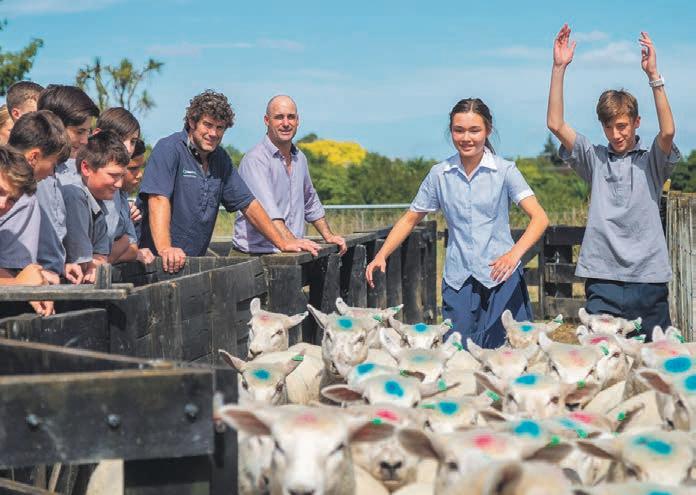
Agricultural graduates are essential for our primary industries, as people with the vital role of producing food seek to front-foot the various challenges and pressures a˜ ecting them - now and into the future.
Schools, industry, parents and



universities need to encourage more people into these ÿ elds of study to ensure that New Zealand can continue to feed the world and support our economy, Mark says.

Wairarapa Rural Outlook checked in with some of the Wairarapa’s colleges to see how they were ÿ nding the current situation
Wairarapa College
Wairarapa College currently has 376 students doing an agricultural related course over years 9 to 13, with many of the junior students taking up the farm math option as well, says Dan Grace HoD Agriculture/ Farm Manager.
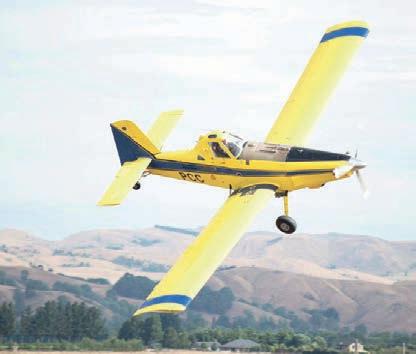
“A number of our students move on to Massey or Lincoln University, with around 30 old alumni gaining bachelor degrees in the last ÿ ve years.
“We have had six students go through Smedley over the last ÿ ve years with a number moving on to the recently set up Growing Future Farmers course. Students are also moving into work straight out of school, from shepherds, to fencing or other contractors.

“It was good to see a number of ex-students competing at

the Golden Shears this year“The split is even between male and female, and those who live in town and those that grew up in the country.
“Farming is tough work in tough conditions. Students have to love working outside and love working with livestock. They must become familiar with new technologies like EID tags, NAIT, Farm IQ and handle modern equipment. They must understand updated council, animal welfare and environmental regulations. For those that love working on the land it is a rewarding career.
“For those students moving on to an academic career, they will need to study Biology, Chemistry, Maths, and Economics.



“For those wanting to work on farm a knowledge of animal behaviour, being able to fence, handle a handpiece, having a driver’s license, maybe a team of dogs, awareness of agrichemicals would be of use, but the main thing is an attitude to learn and work sometimes long hours.”
Principal Simon Fuller says
a steady percentage of the college’s students show an interest in a career in agriculture and horticulture each year.

“We are trying to give students a better understanding of all the di˜ erent roles that are available. They think of it is about being a farmer but there are lots of other ÿ elds such as agri-business and environmental management that are all viable options.”
Year 9 and 10 students can experience stock management, basic farm budgeting, fencing etc in an Agricultural Academy in partnership with Primary ITO while senior students are o˜ ered agricultural courses run by the school and external courses through Primary ITO. Every ÿ rst semester Kuranui runs a W˝nanga programme every Wednesday where students can get exposure to di˜ erent careers such as apiculture, viticulture, soil science and animal care with teachers working in partnership with local businesses.
“There are a great range of growing options for kids to do. Our biggest task is to break down the stereotypes, and open their eyes to the huge variety of possibilities out there.”
Last week four Wairarapa dairy farmers attended the Dairy Environment Leaders (DEL) forum in Wellington.
Held over two days, the forum brought together 60 of the 300 DELs in New Zealand with a wide range of speakers from government ministers to economists and even All Black great Buck Shelford.
The four Wairarapa DELs were Aidan Bichan and Vern Brasell of Kaiwaiwai Dairies near Featherston, Rachel Hammond who farms with her husband Hamish at Greytown, and Leo Vollebregt who farms with his wife Rebecca at Kahutara in the South Wairarapa.


Aidan and Vern have been Dairy Environment Leaders since 2015 when they were shoulder tapped by Leo for the role.
They in turn shoulder-tapped Rachel, who represents the next generation of Dairy Environment Leaders.
The annual forum is an opportunity to discuss sector challenges and opportunities, and share environmental successes. Around a third of the DELs at this year’s forum were ÿ rst timers.
Vern was born on a dairy farm at Parkvale, Carterton and hasn’t done anything else since, while Aidan was once an East Coast Consulting O° cer for the New Zealand Dairy Board.

They have known each other for more than 40 years and are the public face of Kaiwaiwai Dairies which has six shareholders, hosting overseas visitors, politicians, schools and the general public on the farm which is known for its commitment to best environmental practices.
“We believe that what we are doing and working towards is important for a lot of farmers,” says Vern.
“And we are trying to meet the demands of the markets and the community we live in


at the same time as running a proÿ table business.”

What impressed Aidan and Vern most at this year’s forum was how much the market is now the driving force in improving on-farm environmental practices.
Some of the biggest companies in the world such as Nestle and Unilever are looking for suppliers who meet their environmental expectations,



Vern says.
“Recently I’ve been to the New Zealand Agricultural Climate Change Conference 2023 and the Dairy Environment Leaders Forum. At both of them the same story came through.”

Banks and insurance companies are also raising their expectations, says Vern.
“I read an article that said insurance companies are now
asking directors of companies how they are measuring their environmental footprint and climate change risk before o˛ ering comprehensive directors insurance.”
Aidan says a table shown at the forum compared government regulatory expectations up to 2050, with those of some of the biggest buyers of milk products in the world.
“What companies like Mars and








Nestle are expecting is much more than the government regulatory space. Regulations should be for the laggards, good policy and direction should be enough for the majority.
“They have a list of requirements, and the more points you have on that list, the more likely they are to buy from you.
“As you go up the pyramid, your price goes up, but so do the standards.
“If you are only going to meet the very minimum standards, in future you will only be able to sell to second and third tier markets, with lower prices, so you will struggle to be proÿ table.

“To make a proÿ t, you will need



to be heading toward better than just meeting the minimum regulations in order to get the premiums and have a future.

“And the standards are always going up around carbon footprints, energy usage and water usage.”
Kaiwaiwai Dairies only uses half the clean water per day in its dairy shed compared to the average dairy farm, Vern says.
“At the moment that doesn’t give us any brownie points except from a marketing point of view.
“But Nestle could turn round and say to Fonterra that they want to buy milk that uses less water to create it.”
Rising standards may force
farmers who are not prepared to change, out of their dairy sheds, Aidan suggests.
“We are already seeing that now around e˝ uence compliance. That has been steadily getting higher over time.
“Now you have to put in storage so that you are not irrigating to ground in unsuitable conditions. That requires an investment of $100,000 to $200,000.
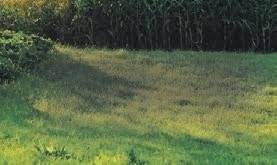

“In the Wairarapa that’s been the biggest reason for land use change from dairy.


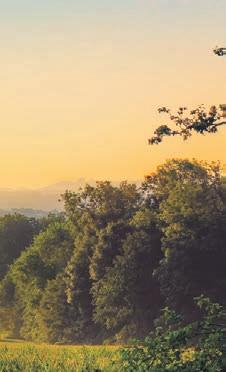
“Some farms have a system that was approved ten years ago, but the new consent standards have lifted.








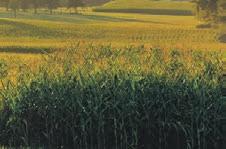

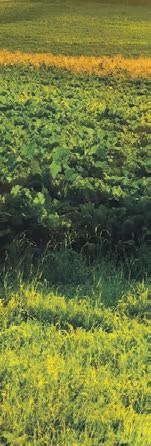



“People are saying that is not economic on their farm so some of them have changed to beef production or lamb ÿ nishing.”
Another trend that Aidan and Vern have noticed is that there is less certainty in the market.
“The world is changing faster than it has. We have lived through the greatest period of free trade. The geo-political situation now is leading to more direct and indirect trade protectionism,” says Vern.
To make a proÿ t, you will need to be heading toward better than just meeting the minimum regulations in order to get the premiums and have a future.”
“I think the idea that you are going to get a vision for the next 20 years and know what it is going to be like has gone.
“The ability to adjust has always been an important skill in the dairy industry, but now more so than ever.”
DairyNZ invites environmentally minded dairy farmers to join the DEL network.
The industry-good body welcomes enquiries from dairy farmers with a particular passion for the environment who would like the opportunity to develop leadership skills and learn more about sustainable farming.
For more information or to register interest, please email DEL@dairynz.co.nz
• Pivots & laterals
• VRI for pivots & laterals
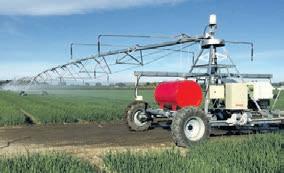
• Variable Rate Irrigation



• Hoses & accessories
• Couplings & fittings
what we sell, we will also stand by you to ensure that your farming interests reap maximum benefits of the irrigation systems you have installed. We are committed to providing you the support when and where you need it.
• Hard hose irrigators







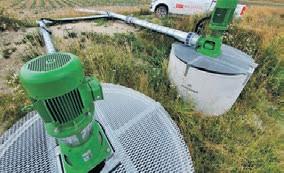
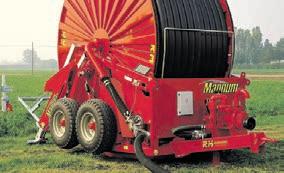



• Pumps & motor pumps
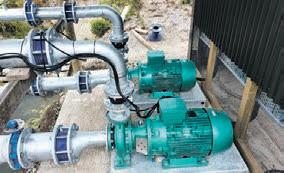



• Generator sets



• Engine protection



• Rain guns and booms





While the outlook for global sheepmeat and beef trade is improving, Beef + Lamb New Zealand (B+LNZ) expects farmer proÿ tability to fall sharply due to reduced livestock prices and continued high in° ation.
The Beef + Lamb New Zealand (B+LNZ) Mid-Season Update 2022-23 says that farm proÿ t before tax is estimated at $146,300, a 31 percent decrease from 2021-22 and below the average for the past ÿ ve years.
Farm proÿ t before tax is equal to gross farm revenue minus total farm expenditure.
Farm proÿ t is used to meet taxation payments, personal drawings, debt repayments, and the purchase of capital items for the farm business such as farm machinery.

“In° ationary pressure is causing on-farm costs to increase sharply, eroding the beneÿ t of what are still historically pretty
good farm-gate returns” says B+LNZ Chief Economist Andrew Burtt.

The forecast uptick in global sheepmeat and beef trade is supported by generally solid fundamentals in key markets, with demand projected to recover, while global supply levels remain tight.
Weather events like Cyclones Hale and Gabrielle and ° ooding during January means farmers will be rebuilding vital infrastructure.”
This follows a stark drop in demand for sheepmeat at the start of the season before China relaxed its Zero-COVID policy.
“As 85 percent of New Zealand’s mutton exports are to China, this impacted export receipts, which were one-third lower compared to the same period last season,” says Burtt. However, a recent case of bovine spongiform

encephalopathy (BSE) in Brazil has added fuel to a tightening global beef market. As falling farm-gate prices lead to a decrease in revenue, farmers have sought to reduce costs by deferring repairs and maintenance and reducing fertiliser use, but in° ation and the increasing price of farm inputs are outweighing cost cutting initiatives.
“Overall expenditure has increased to an average $531,500 per farm in 2022-23,” he says.
“Fertiliser, lime, and seeds expenditure is forecast to increase by 6 per cent to average $102,100 per farm, following a 15 per cent increase last season.
“This is the largest area of expenditure for sheep and beef farms at around 19 per cent of farm expenditure in 2022-23.”
Interest rate rises and increased overdraft borrowing is forecast to increase interest expenditure 12.5 per cent above last season – averaging $54,000 per farm.
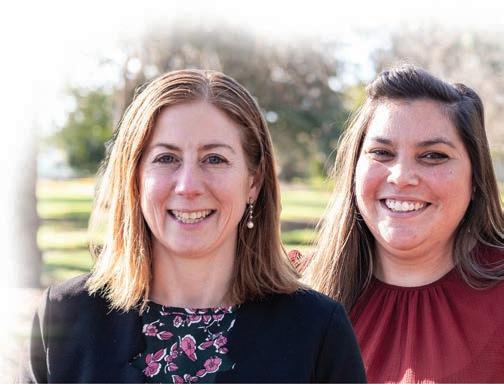
As farmers reÿ nance and extend overdrafts while receiving lower farmgate prices, managing cash° ow will be a challenge this season.
To add to the ÿ nancial pressures facing farmers, the full impact of Cyclones Hale and Gabrielle is not yet known.
“Weather events like Cyclones Hale and Gabrielle and ° ooding during January means farmers will be rebuilding vital infrastructure.
“This will signiÿ cantly lift repairs and maintenance expenditure and much of this spending will be on extended overdrafts,” says Burtt.
“Slips and silt destroyed farm infrastructure and stock losses are not fully accounted for after Cyclone Gabrielle.




“The economic impact on the supply chain for agriculture will be felt for years to come.”
The full Mid-Season Update report can be read at bee° ambnz.com
